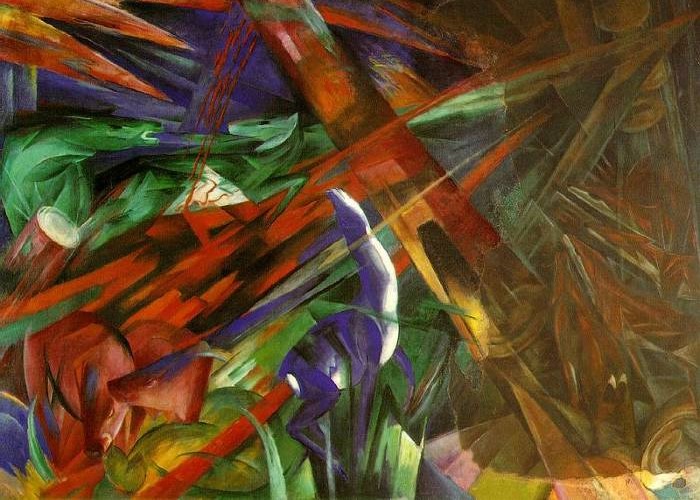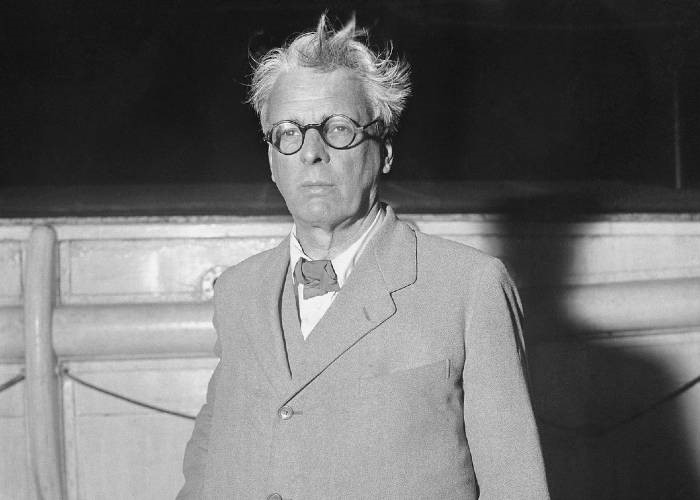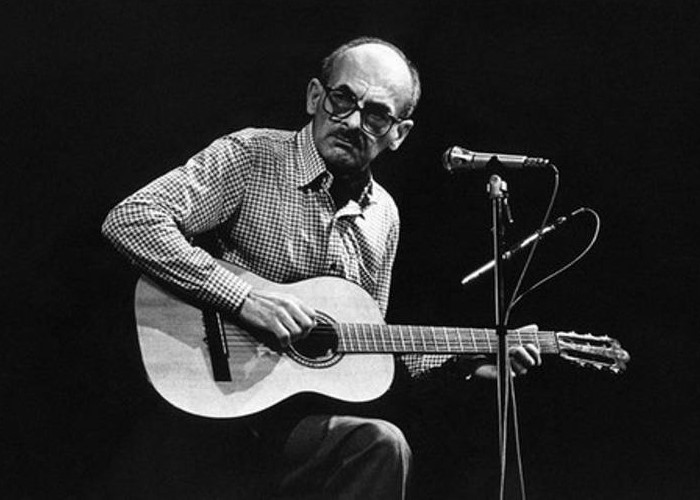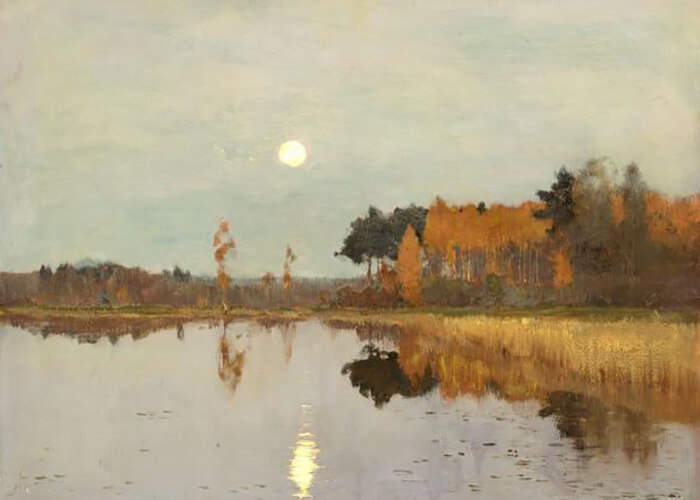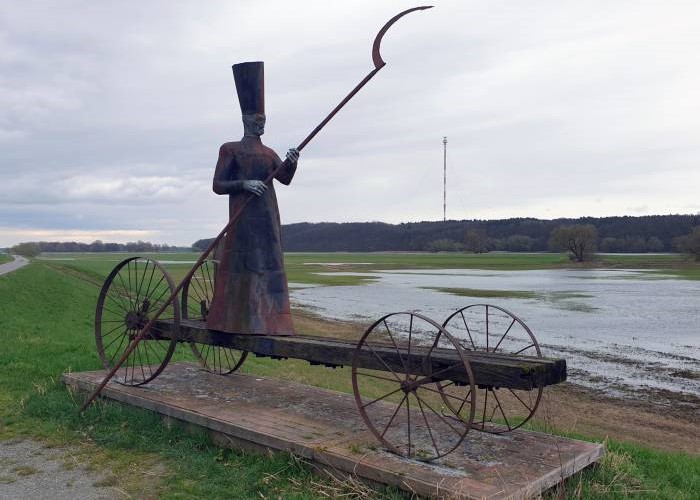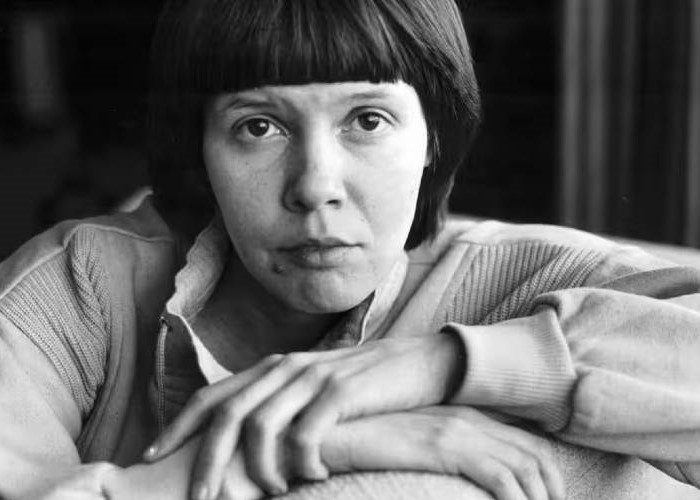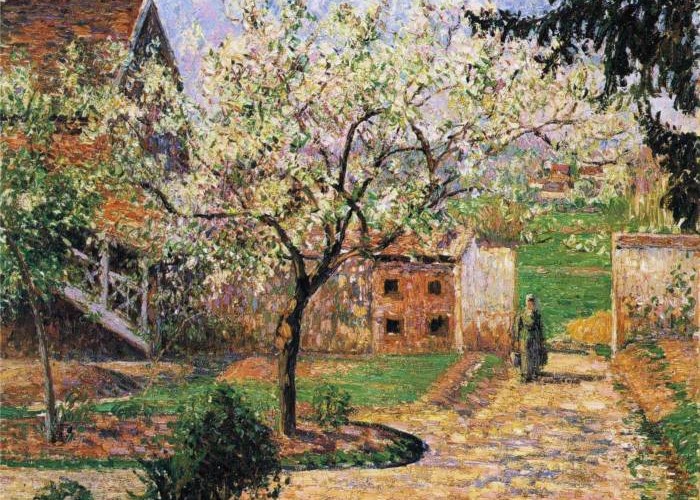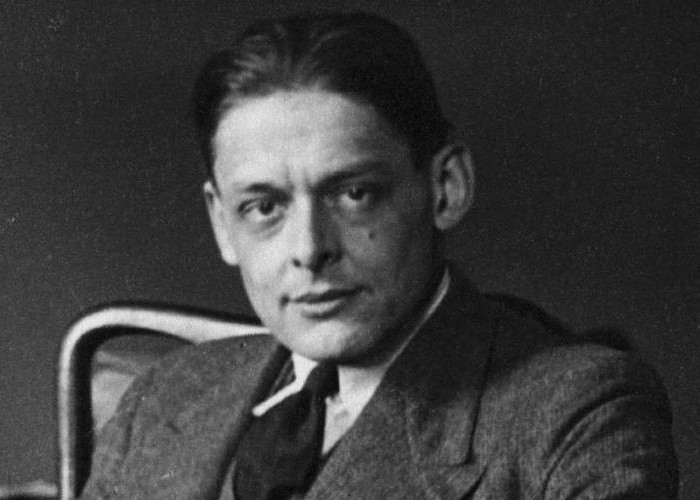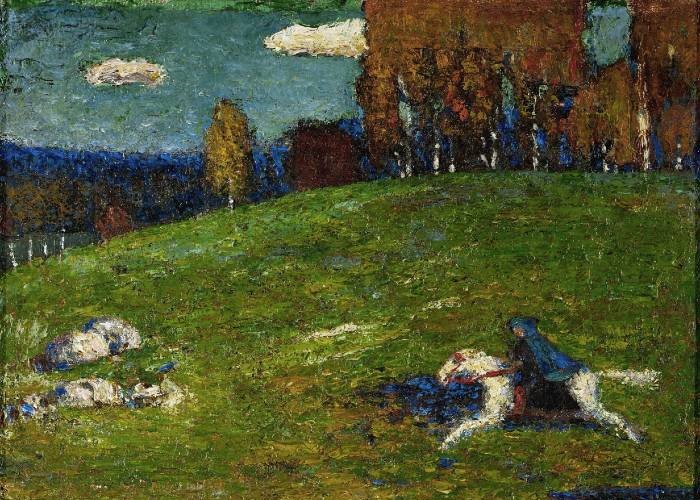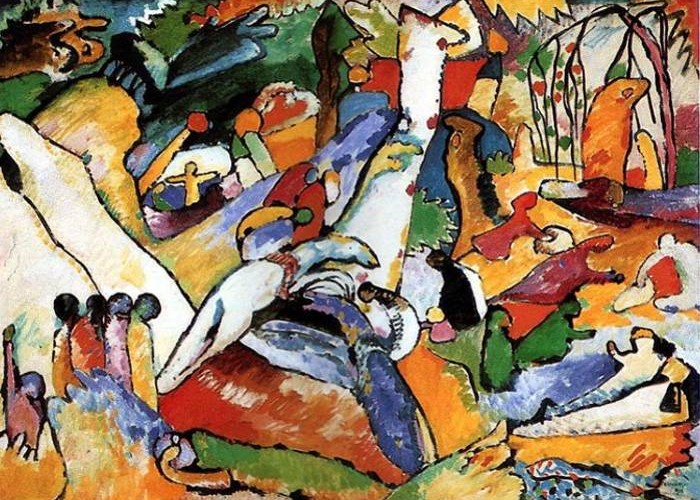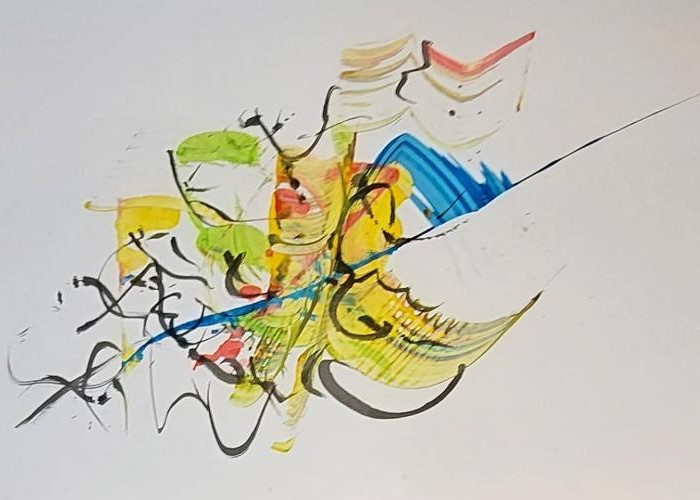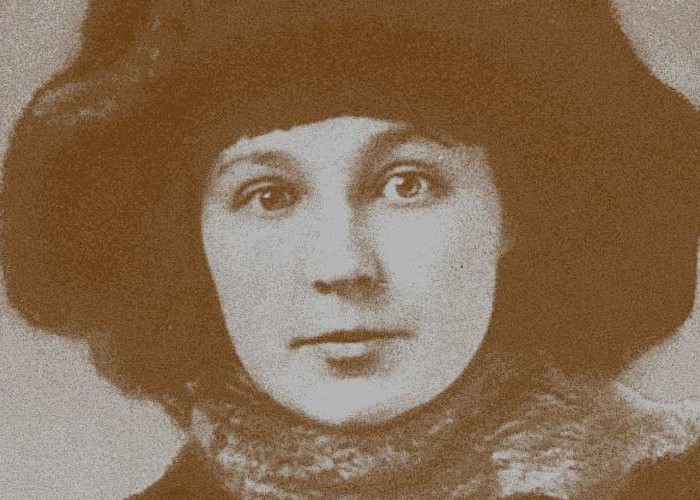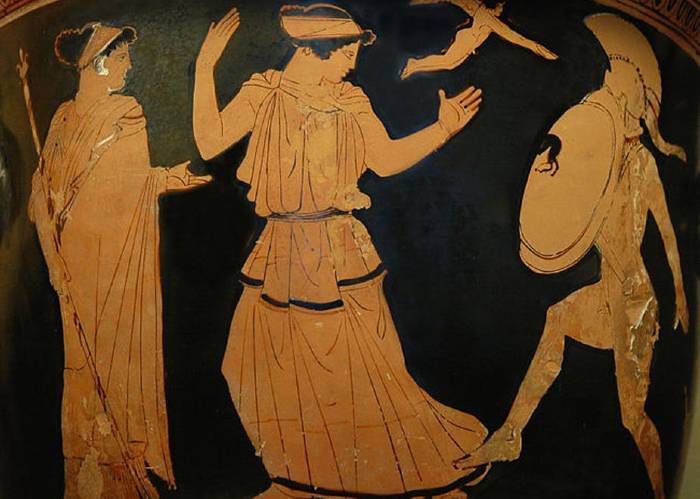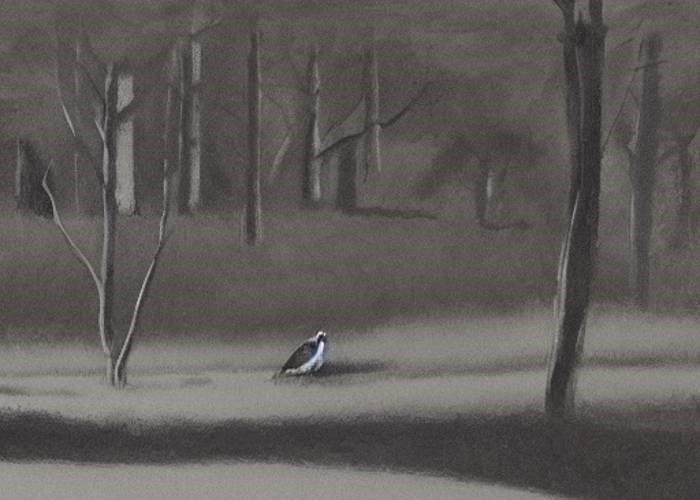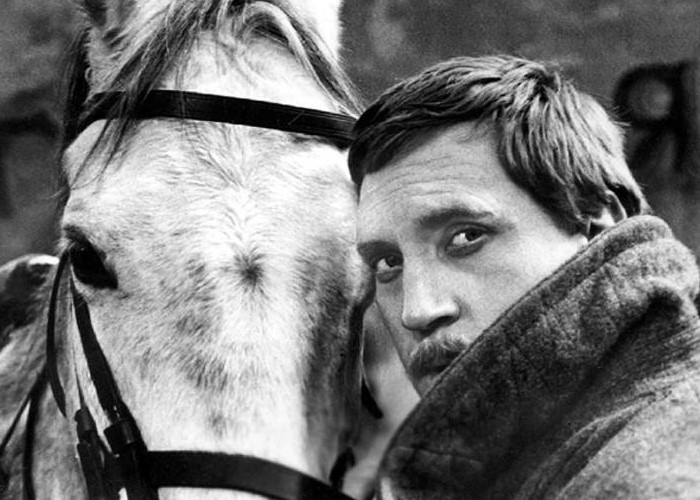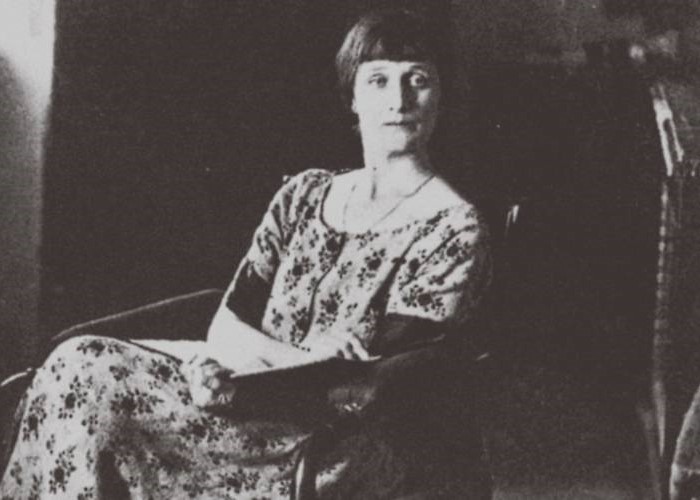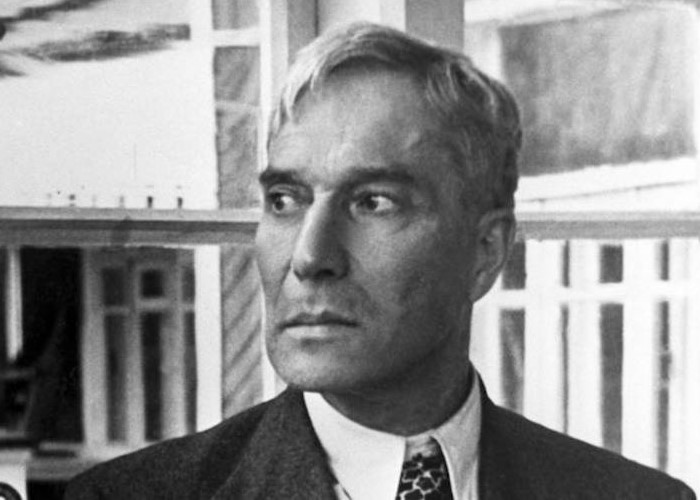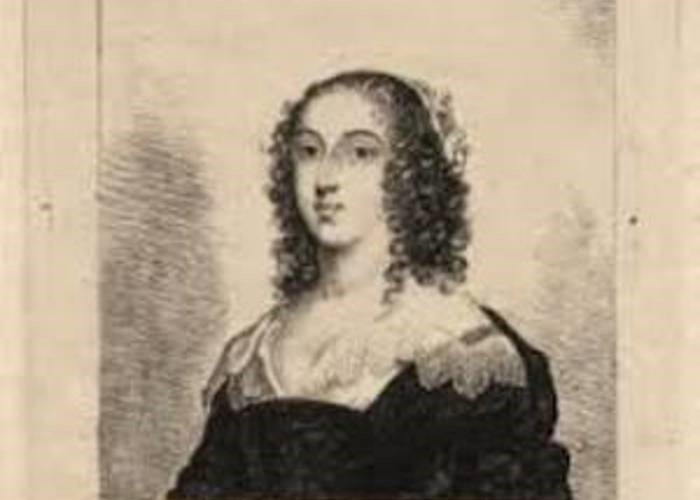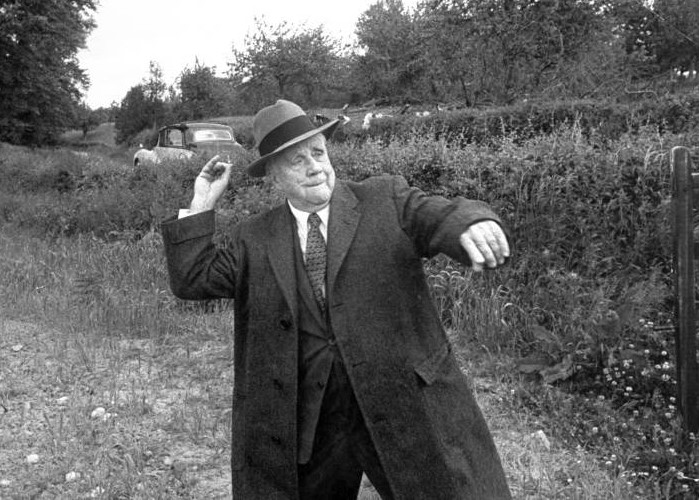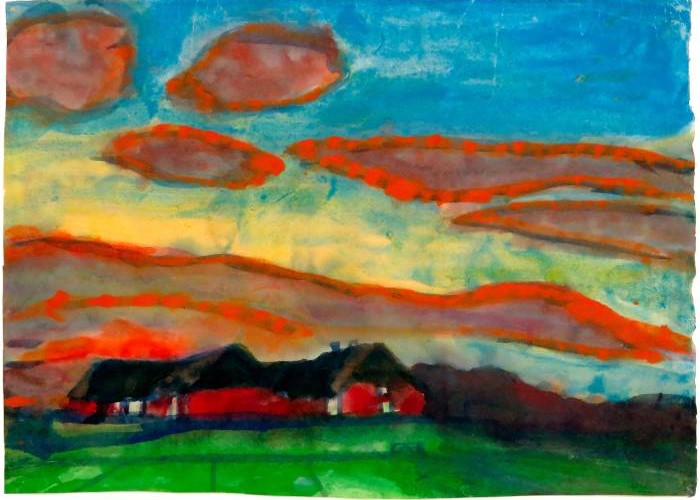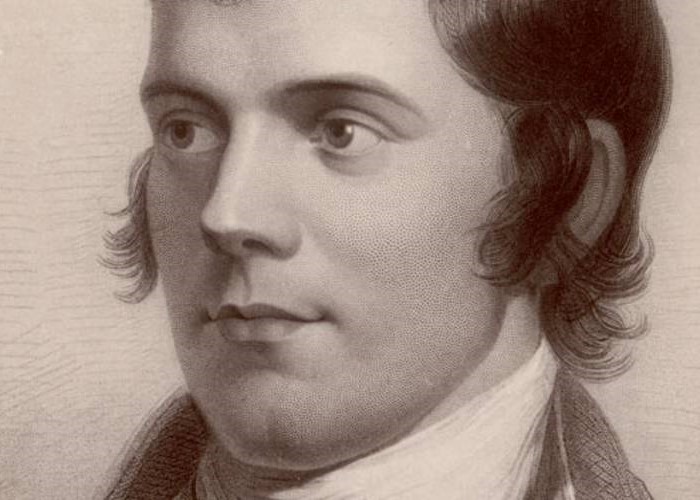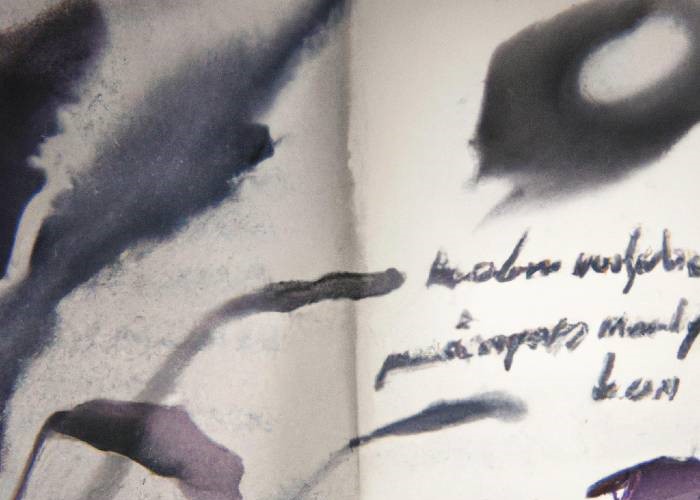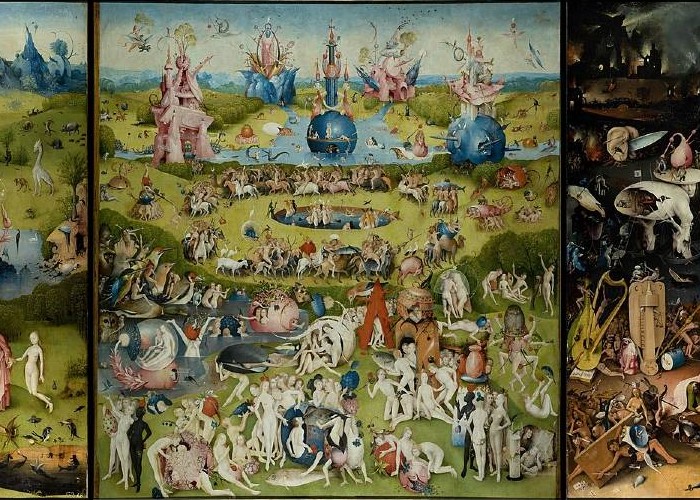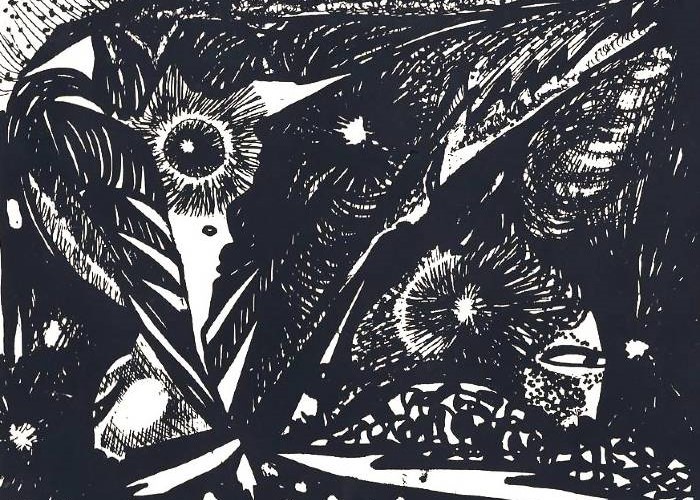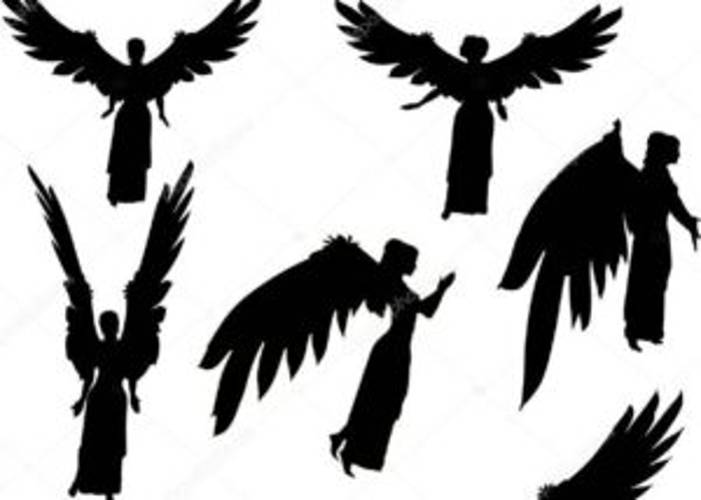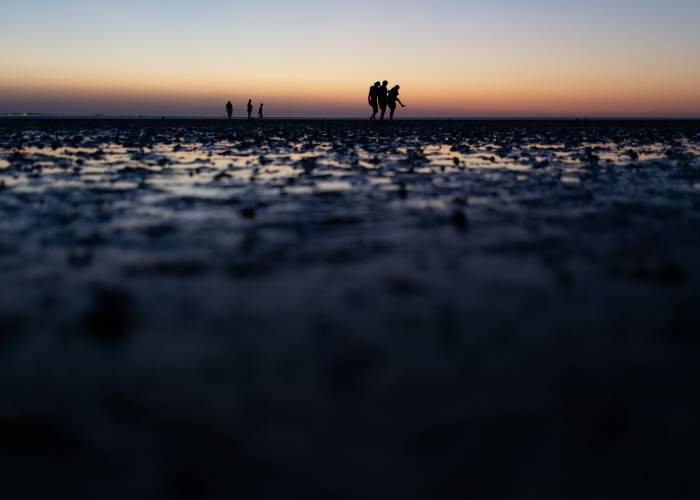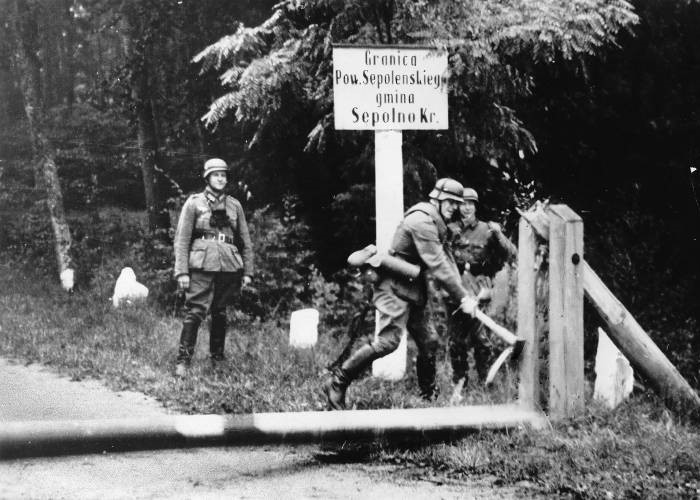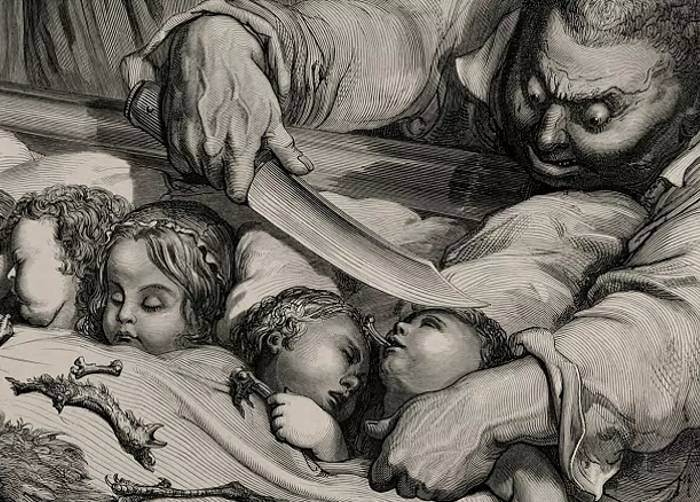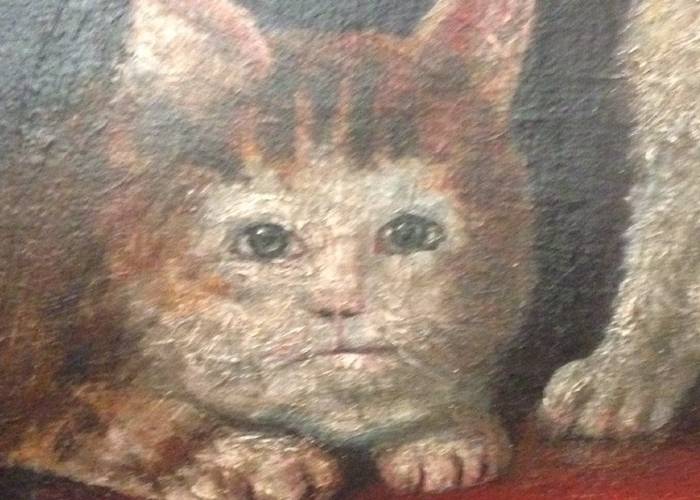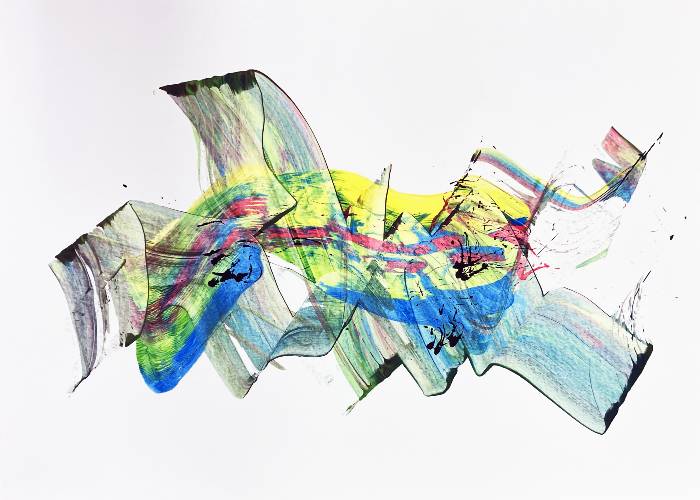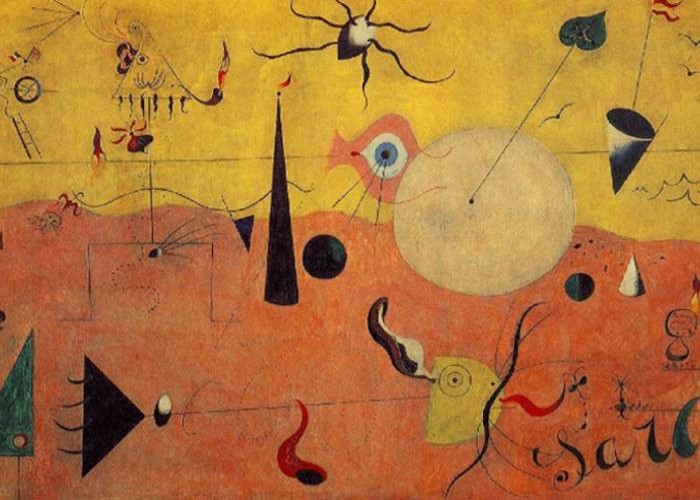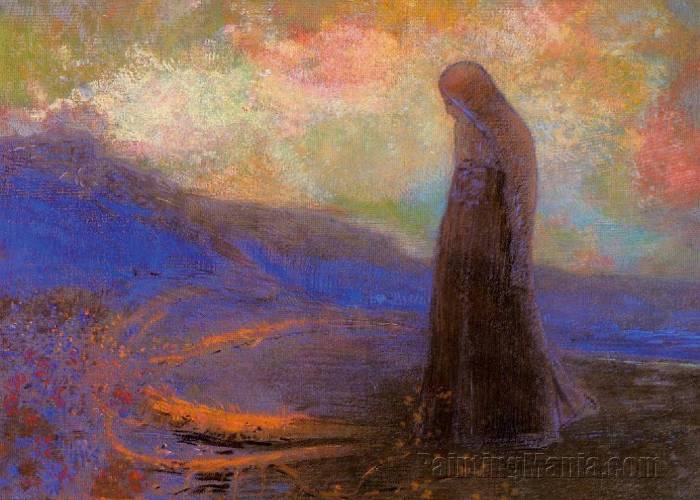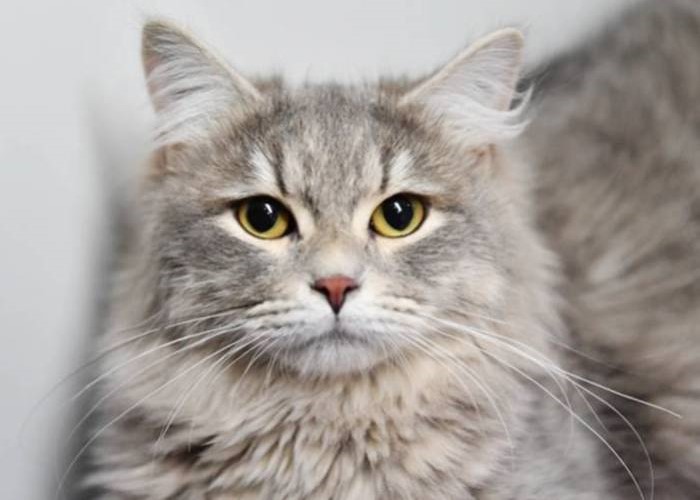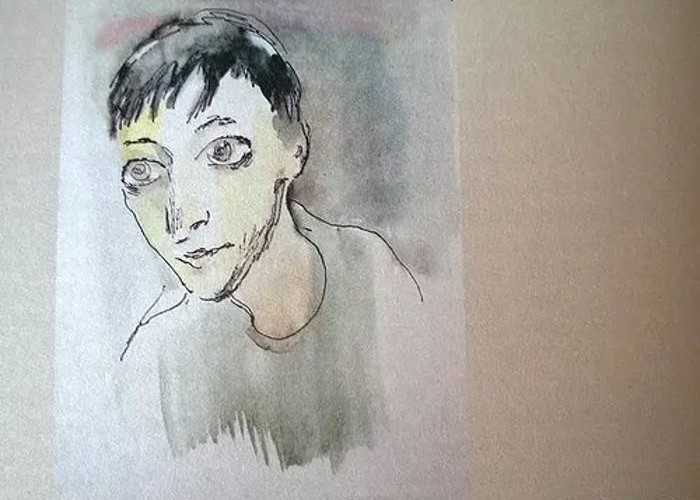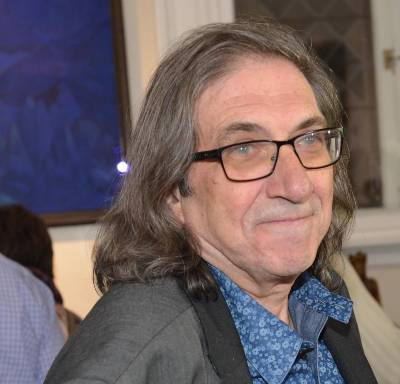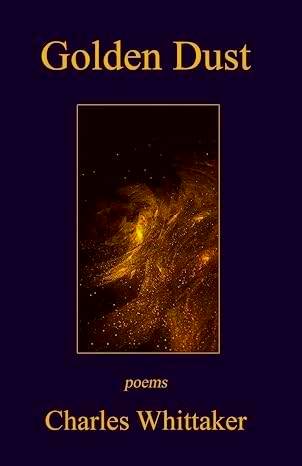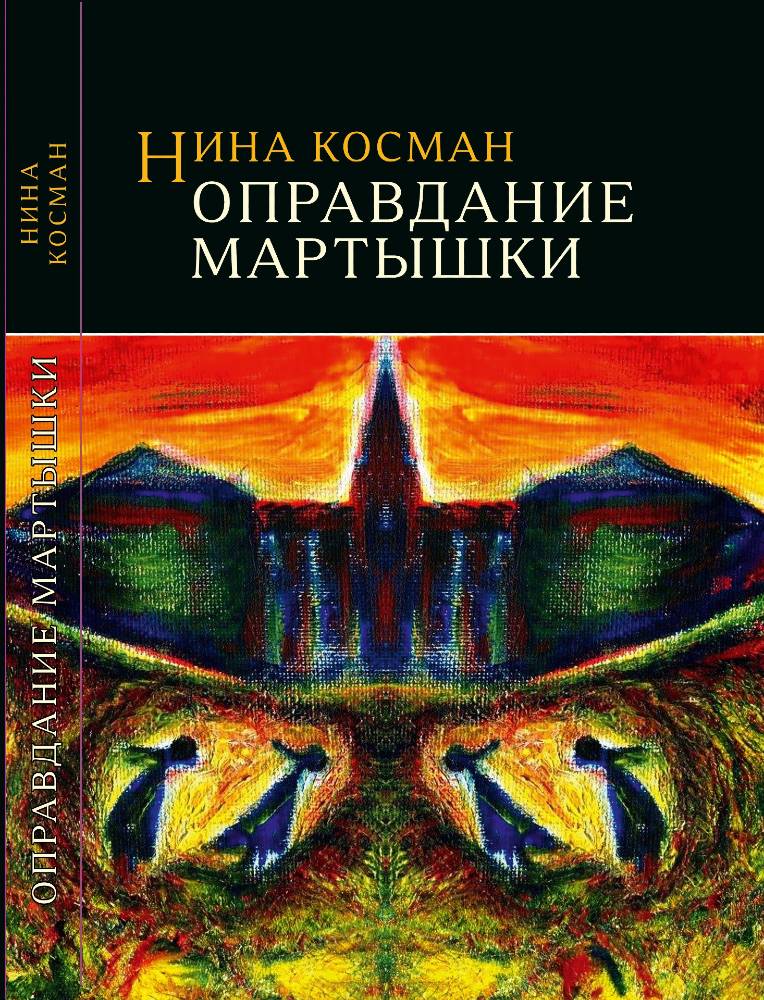* * *
Once there was Hellas on Earth
In the morning land…
Do not wake up the dead,
Do not be sad.
The evening and the night will pass,
The fog will sit still.
All wounds will heal,
Any wound will.
Why crave for future, blame
Those who passed away?
It might be better just to sing,
Better that way?
Sing of a bright and breezy dawn
In the wide world,
Where chains of quiet lamps swing
Under the wind.
In yellow fretted maple leaves
Pure joy nests:
Once Hellas was in the morning land,
On this earth.
1954
The Original
Когда-то в утренней земле
Была Эллада…
Не надо умерших будить,
Грустить не надо.
Проходит вечер, ночь пройдет —
Придут туманы,
Любая рана заживёт,
Любые раны.
Зачем о будущем жалеть,
Бранить минувших? —
Быть может, лучше просто петь,
Быть может, лучше?
О яркой ветренной заре
На белом свете,
Где цепи тихих фонарей
Качает ветер,
А в жёлтых листьях тополей
Живёт отрада:
Была Эллада на земле,
Была Эллада…
1954
Lemon-seller
— Moon lemons!
Brazen lemons!
Ringing sermons —
buy them,
Scatter them all around,
Moon lemons —
They will fill the room
with a lemon moonlight.
—Dazzling lemons!
Ringing lemons!
If your night
is dull and dark,
Buy moonshine —
Moon lemons,
Bronze lemons! —
Gold mine!
1954
The Original
ПРОДАВЕЦ ЛИМОНОВ
— Лунные лимоны!
— Медные лимоны!
Падают со звоном —
покупайте их.
Рассыпайте всюду
— Лунные лимоны —
Лунно и лимонно
в комнате от них.
— Яркие лимоны!
Звонкие лимоны! —
Если вам ночами
скучно и темно,
Покупайте луны —
Лунные лимоны!
Медные лимоны! —
золотое дно!
1954
Dialogue
— Why do your smiles resemble those of mummies
And your eyes, like deadly ponds, look down?
— Ashy condors of austere musings
Fly around, invade our town.
— Why are all the gates forever dumb?
— Nobody has touched those gates for years:
Golden brushes of machine-guns
Swept the people from the quiet squares.
1955
The Original
ДИАЛОГ
— Почему у вас улыбки мумий,
И глаза, как мертвый водоём?
— Пепельные кондоры раздумий
Поселились в городе моём.
— Почему бы не скрипеть воротам?
— Некому их тронуть, выходя! —
Золотые мётлы пулемётов
Подмели народ на площадях.
A Scarlet Streetcar
A dream was cut off: unfinished
Was the laughter and barking of stones.
A scarlet streetcar rushed forward
In a starry frost of the night.
A few empty corridors run
One by one, and in each
Rides a double of the Commander* —
His granite feet are stone cold.
—Who’s there?
—The grave’s conductor!
Black is the lightning of his gaze;
His blue throat is squeezed
By the chain of the Golden Fleece.
— Where am I? (He bursts into
laughter).
— What is it? Heaven or Hell?
A scarlet streetcar is hurled
Into a starry frost of the night.
Who’ll stop the car? We are whirled
In the whirlwind of a vicious circle!
The dead iron crow of the wind
Slapped my face with its wing.
The burning edge of the sky
Explodes like a copper cask:
A Scarlet Streetcar is cast
Into a starry frost of the night!
1955
The Original
АЛЫЙ ТРАМВАЙ
Сон оборвался: не кончен
Хохот и каменный лай.
В звездную изморозь ночи
Выброшен алый трамвай.
Пара пустых коридоров
Мчится один за другим.
В каждом — двойник Командора —
Холод гранитной ноги.
— Кто тут?
— Кондуктор могилы!
Молния взгляда черна,
Синее горло сдавила
Цепь золотого руна.
— Где я? (кондуктор хохочет.)
Что это? Ад или рай?
— В звездную изморозь ночи
Выброшен алый трамвай!
—Кто остановит вагоны?
Нас закружило кольцо!
Мертвой, чугунной вороной
Ветер ударит в лицо.
Лопнул, как медная бочка,
Неба пылающий край.
В звездную изморозь ночи
Выброшен Алый Трамвай!
1955
Legionaries’ Song **
The moon’s samovar
Hums to a star,
The night’s chimneys moan:
— Varus, give them back,
— Varus, hey, Var?
— Varus, give those legions back!
— Ravens will caress us
Drinking eyes from skulls! —
The legions are soundlessly singing
Silent songs without words.
Hovering hawks rush the shrouds.
Faithful Gauls are going to bed
Convinced to lie down;
Latin speech is quenched dead.
Stout consuls are asleep.
There is no victor here!
— Varus, hey, Var!
— Varus will never reply:
— The list of triumphs came to the end.
The moon’s samovar
Hums to a star,
The night’s chimneys moan:
— Varus, give them back,
— Varus, hey, Var?
— Varus, give those legions back!
The Original
ПЕСНЯ ЛЕГИОНЕРОВ
Тихо мурлычет
Луны самовар,
Ночь дымоходами стонет:
— Вар, возврати мне их,
— Вар, а Вар?
— Вар, отдай легионы!
— Нас приласкают вороны,
Выпьют глаза из голов! —
Молча поют легионы
Тихие песни без слов.
Коршуны мчат опахала
И, соглашаясь прилечь,
Падают верные галлы, —
Молкнет латинская речь.
Грузные, спят консуляры:
Здесь триумфатора нет!
— Вар! –
Не откликнуться Вару —
Кончился список побед.
Тихо мурлычет луны самовар,
Ночь дымоходами стонет:
— Вар, возврати мне их!
— Вар, а Вар?
— Вар, отдай легионы!
________________
TRANSLATOR’S NOTES
* An allusion to Pushkin’s Stone Guest and Mozart’s Don Juan as well as to Nikolai Gumilev’s poem “Wayward Trolley”.
** An allusion to a tragic episode in the Roman history when three Roman legions and their allies Gauls led by Publius Quintilius Varus were defeated by the German tribes under Arminius in the Teutoburg Forest in 9 A.D., and Varus committed suicide. Svetonius writes that Augustus was in such a despair that he hit his head against the doors exclaiming: “Publius Varus, give me those legions my legions back!”


